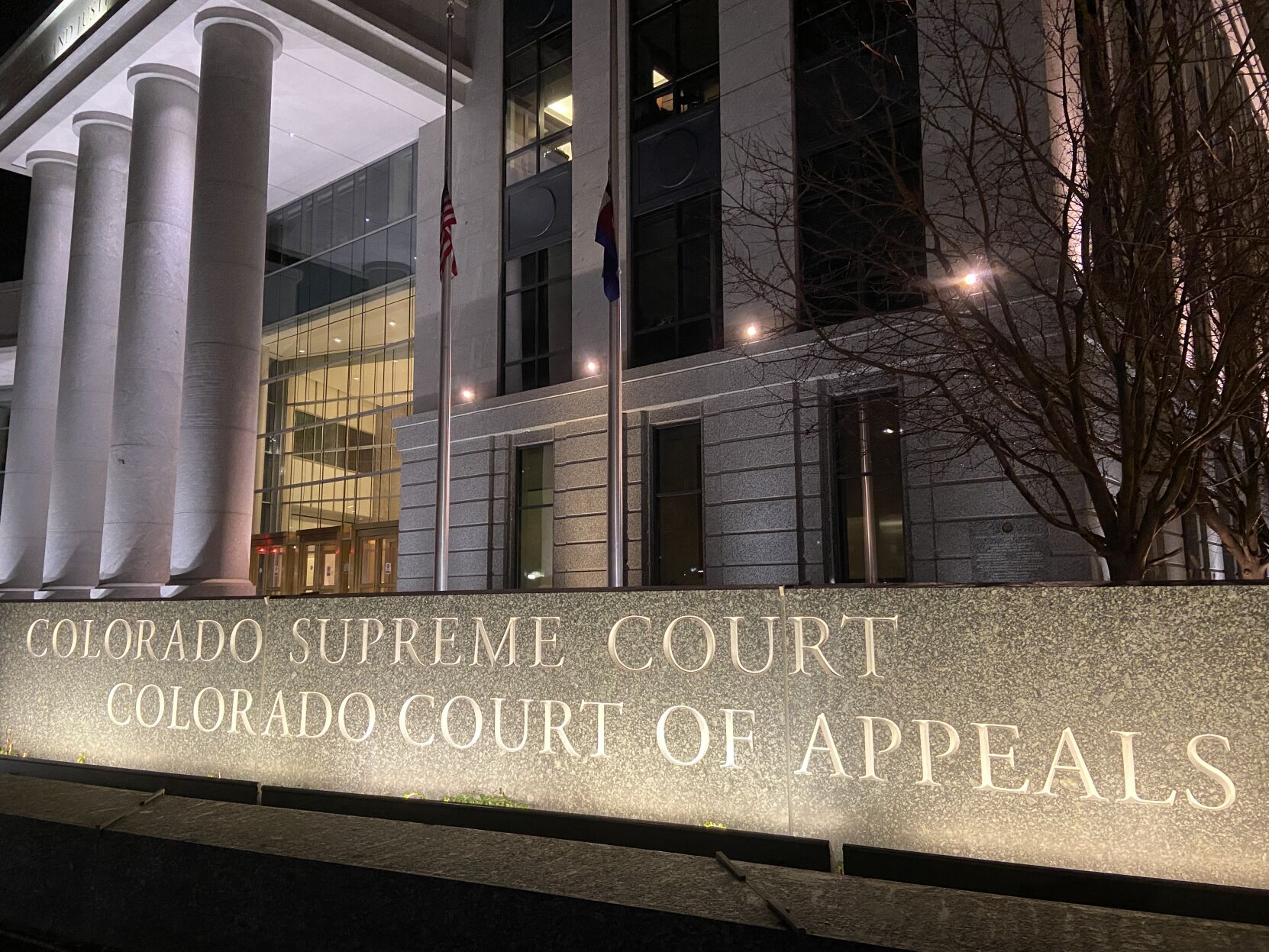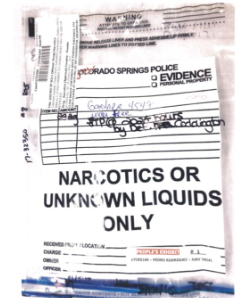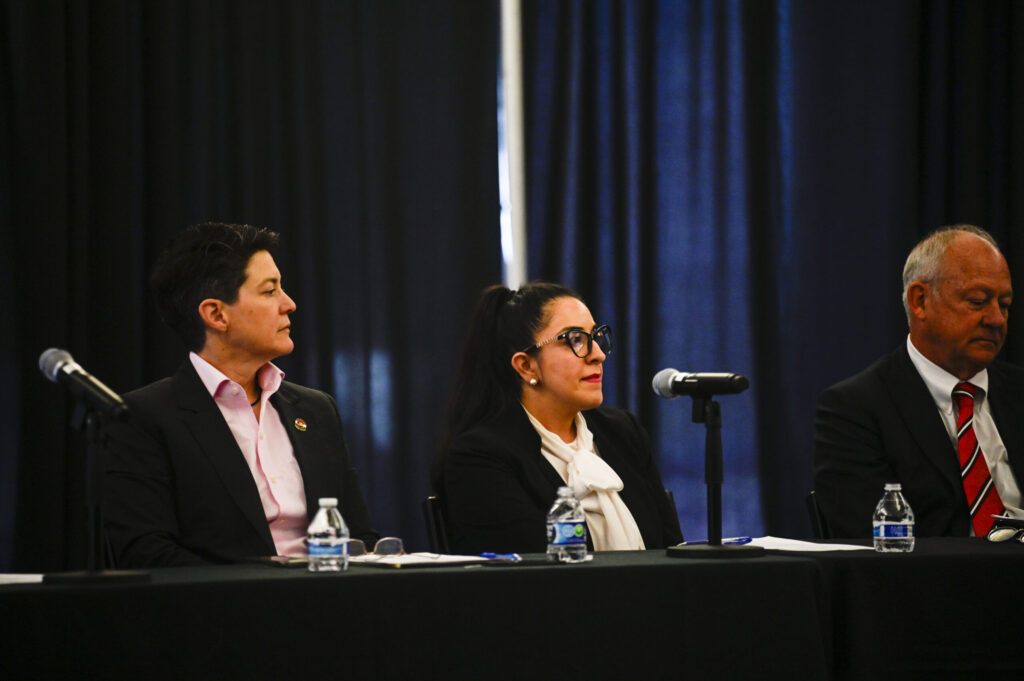Appeals court slams failure to document custody of drug evidence in Colorado Springs case

A man will receive a new trial after the state’s second-highest court ruled that prosecutors failed to show Colorado Springs police continuously kept track of a bag of white powder, with one officer acknowledging he retrieved it from the ground and never saw it again until trial.
Three judges on a panel of the Court of Appeals reversed the drug possession conviction for Pedro Rodriguez months after castigating the government for the substandard evidence-handling in Rodriguez’s case.
“There’s not a case in the country that says a police officer can get up on the stand and say, ‘I recognize white powder from 14 months ago’,” said Judge Elizabeth L. Harris during oral arguments in November.
“I mean you see it on television all the time, right? The detective initials it, dates it, puts it in a custodial envelope, secures it with metal clips, comes to trial, says, ‘That’s the envelope. Those are my initials, and here’s the procedure under which it was kept’,” added Judge David J. Richman. “Don’t we have to hold them to that standard?”
The appeals court’s opinion, issued on Thursday, confirmed that Rodriguez’s jury had no way of knowing the bag of cocaine presented at trial was the same bag recovered at the crime scene due to an unaccounted-for gap in documentation.
Officer Chase Gardner stopped the car in which Rodriguez was a passenger in September 2017. At one point, the occupants appeared to be on the verge of fleeing, and Gardner punched the driver in the face while another officer used pepper spray. When Gardner pulled his gun, Rodriguez jumped out and ran.
Officers chased after him and quickly took him into custody. While he was running, Rodriguez threw down a plastic bag with a white, powdery substance.
Gardner picked up the bag and gave it to Sgt. David Manzanilla. The officer did not see it again until Rodriguez’s trial.
At some point, a chemist tested the substance in the bag and determined it to be cocaine. The chemist testified that Exhibit 1, the evidence bag containing the smaller bag of powder, was in the Colorado Springs Police Department’s evidence section. He did not know who put the item in evidence or where it had been. The chemist resealed, marked and returned Exhibit 1 after he tested it.
According to the appeals court, Gardner testified that after he handed the plastic bag to Manzanilla, he “never saw it from there.” Manzanilla did not testify at Rodriguez’s 2018 trial. Instead, Gardner identified Exhibit 1 as the “substance that I observed in the bag.”

District Court Judge David Shakes allowed Exhibit 1 as evidence, despite the fact that the rules require “authentication or identification” of evidence.
Rodriguez argued on appeal that the bag of white powder was not unique enough to be identified, and authentication required a chain of custody to show it was the same bag Gardner recovered from the scene of the traffic stop.
The chain of custody, which documents the transfer and analysis of evidence, also deters tampering or contamination – given that the chain can indicate who was responsible.
“This is the most critical part: no one testified that they took that bag and logged into evidence,” Deputy State Public Defender Brian Sedaka told the appeals court. “It’s a clear plastic bag containing a white powdery substance. I think we all know that police evidence departments are full of clear plastic bags with white powdery substances in them.”
The Colorado Attorney General’s Office countered that it was sufficient for Gardner to testify that the bag of powder appeared the same at trial as when he recovered it. Gardner’s name was also listed on the evidence bag for Exhibit 1, so his identification, according to Assistant Attorney General Brenna Brackett, was “based on more than the powder itself.”
But the Court of Appeals panel pushed back during oral arguments on the government’s representation of what happened.
“He didn’t write his name. There was no testimony,” Richman said.
“What you’re really saying is, he could look at his name and from the name, identify what’s in the bag,” Harris added doubtfully.
“Yes, it definitely would have been better if they established those facts as is normally done,” Brackett conceded.
Harris continued to cast doubt on the government’s case.
“Here’s the fundamental issue I’m having,” she said. “He didn’t say, ‘I recognize the bag.’ He said, ‘I recognize the substance in the bag.’ That was his testimony. ‘I recognize the white powder.’ You can’t authenticate white powder.”
The appeals panel noted that some cases have allowed witnesses to identify evidence when it is “unique, readily identifiable, or resistant to change.” In one instance, an officer was permitted to identify the defendant’s gun because it was the only one of that type he had seen in his law enforcement career.
In contrast, white powder had none of those characteristics. If Manzanilla were present at trial to speak to his actions once he took the bag, that would have been different, Harris wrote in the court’s opinion.
Alternatively, she added, “had Officer Gardner testified that he observed Sergeant Manzanilla place the bag of white powder into an evidence bag, seal the evidence bag, and make some identifying mark on it, and had the police chemist then testified that when he received it, the bag was sealed in the same manner and with the same identifying marks described by Officer Gardner, the chain of custody would have been sufficient.”
The panel ordered a new trial on Rodriguez’s drug charge and did not address other claims he had made in his appeal, including allegations of prosecutorial misconduct.
The case is People v. Rodriguez.
Editor’s note: This story has been updated on Jan. 25 to modify the headline and first paragraph.

michael.karlik@coloradopolitics.com













